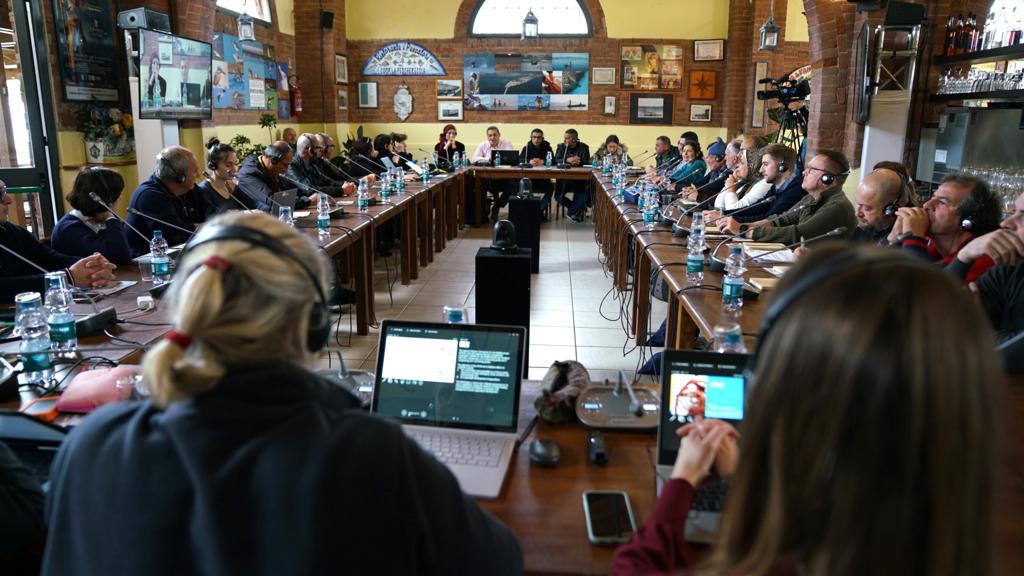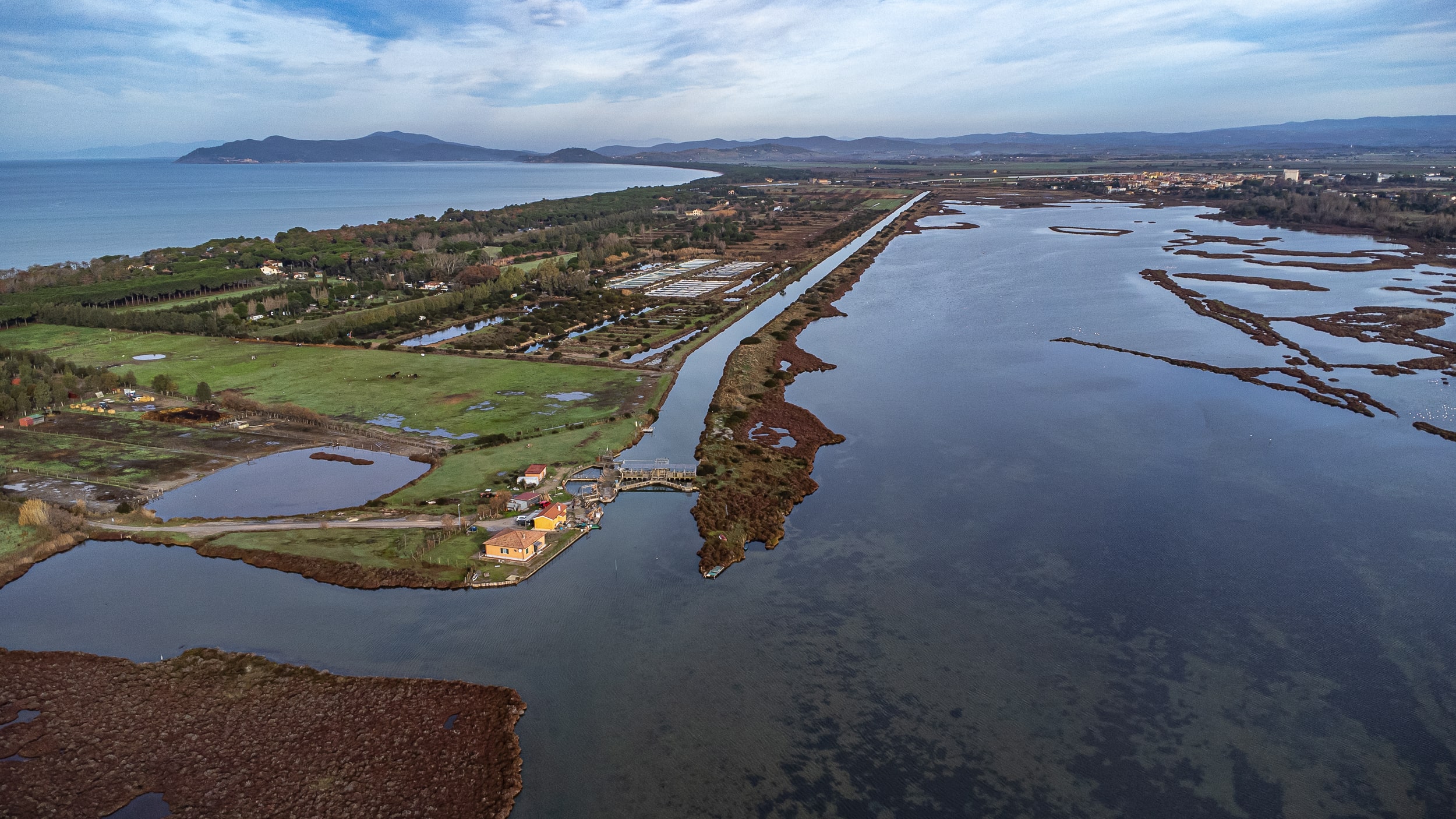Fishers and scientists pledge common efforts to preserve critically endangered European eel
.png)
Dozens of fishers, scientists and administrators met this week in Orbetello, Italy to share knowledge and discuss the future of the European eel fishery in the Mediterranean Sea. They expressed support for collaborating on scientific monitoring activities in order to preserve the species and its habitat.
European eel (Anguilla anguilla) is critically endangered, recording the lowest recruitment levels ever in 2020. A highly migratory species, it faces major threats all along its routes. Climate change, habitat loss and degradation, pollution, overfishing, illegal trafficking, predation and non-indigenous species (such as blue crab and catfish) have had negative anthropogenic and environmental cumulative effects on eels.
In order to address this precarious situation, the General Fisheries Commission for the Mediterranean (GFCM) ran a research programme on eel in nine Mediterranean countries between 2020-2022. It has also organized a series of events, including this SSF Forum workshop in Orbetello, to engage both fishers and scientists in finding a common way forward.


Fishers, scientists and administrators at the SSF Forum workshop in Orbetello ©GFCM/Claudia Amico
"Setting up a monitoring network across the Mediterranean and involving joint efforts of fishers and scientists could contribute to the overall assessment of the state of the eel stock and to the evaluation of the impact of current and future management measures at the local, national and regional levels,” said Elisabetta Betulla Morello, GFCM Fishery Resource Officer. “Sharing knowledge and best practices, like we just did in Orbetello, may lead to the identification of effective management measures tailored to specific situations and implemented by all stakeholders involved," she added.
"Eels are highly migratory. They are a shared stock. Therefore, it is not enough to act locally, and we need to work together. Ad hoc local tailored actions should go hand in hand with regional plans,” said Azza Elganainy, professor emeritus at the National Institute of Oceanography and Fisheries in Egypt.
Participants also highlighted the need for future management action to target not only fisheries, but to equally integrate habitat-related measures and gather all stakeholders around the same table. In the Mediterranean region, lagoons represent by far the largest eel habitat. While lagoons are not as degraded as estuaries and rivers overall, their quality still needs to be improved by limiting pollution and pesticides, as well as by improving water quality and connectivity to the sea. The active role of fishers, and their knowledge, in the overall management of lagoons across the Mediterranean was also underlined.
Given that eels migrate from the Mediterranean Sea to upper river stretches and lakes, as far away as Northern Europe, management measures are required for the entire fragmented habitat in order to ensure the survival of the global stock.
“I’ve been fishing my entire life, out of pure passion. But if we want to protect eels, we also have to protect rivers,” said 60 year-old Adriano Deiana, a fisher from Sardinia.

View of the Orbetello lagoon ©GFCM/Claudia Amico
Participants visited the Orbetello lagoon to observe how fishing activities were carried out and to learn more about initiatives that the “I pescatori” fishing cooperative is leading to maintain the lagoon environment. This unique ecosystem is tied to ancestral traditions of fishing, product transformation and cuisine, and the fishing community here provided an inspiring model for newly established cooperatives across the Mediterranean to follow.
Foreseeing challenges ahead, many fishers echoed concerns for the future of the sector in general, considering the workforce’s ageing demographics and the scarcity of new recruits. Finding ways to attract younger people to jobs along the value chain is therefore a priority.
In fact, as part of the upcoming second phase of the research programme on eel, the GFCM will undertake a socioeconomic study. It will provide a snapshot of the current situation and lay the groundwork for a better understanding of the impacts of the new management measures under implementation in the Mediterranean on both the fishery and the fisher community.
